
David Gregory Jeaffreson, CBE, JP was a British colonial government official and civil servant. He arrived in Hong Kong in 1961 serving as Administrative Officer, and was Secretary for Economic Services and Secretary for Security in 1970s and 1980s, during which he had also been appointed as official Legislative Councillor for more than ten years.

The 2021 Hong Kong Legislative Council election was a general election held on 19 December 2021 for the 7th Legislative Council of Hong Kong. Under the drastic Beijing-imposed electoral overhaul, the total number of seats was increased from 70 to 90 seats, with the directly elected geographical constituencies (GCs) reduced from 35 to 20 seats, the trade-based indirectly elected functional constituencies (FCs) staying at 30, and the additional 40 seats being elected by the 1,500-member Election Committee.

Professional Power is a political group based in Sai Kung District, Hong Kong. The group is formed and led by Christine Fong, a former member of the Liberal Party. The group markets itself as nonpartisan and currently has four members in the Sai Kung District Council.
Eddie Lam Yu-sing is the former deputy executive of Civil Force political party in Hong Kong, and is the current spokesperson and Vice-Chairperson of the New Territories Youth Federation. He previously worked in the China News Service. He was awarded the Secretary of Home Affairs Youth Recognition Scheme in October 2016. He is also a member of the New People's Party as a Pro-Beijing camp politician. In the 2019 Hong Kong local elections, he participated in the Sha Tin District Council Chui Ka election but suffered a severe loss to a Pro-democracy camp opponent.
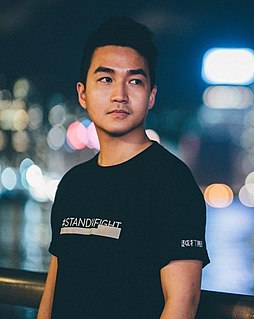
Cheng Tat-hung is a Hong Kong politician, formerly affiliated with the Civic Party. He is a former member of the Eastern District Council for Tanner since 2016 to 2021.
Wong Ho-wa is a Hong Kong data scientist and pro-democracy activist. He led the open government data community g0vhk from 2016 to 2021. He was an Election Committee member representing the information technology (IT) industry from 2016 to 2021 and ran for the Information Technology constituency in the 2020 Hong Kong legislative election as part of the pro-democratic caucus.
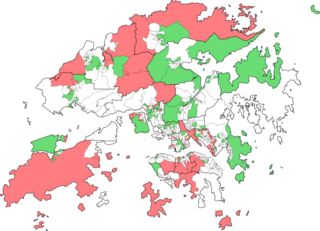
The Sixth District Councils of Hong Kong is the current meeting of the local councils of the Hong Kong Special Administrative Region Government. The membership of the Council is based on the 2019 election. The term of the session is from 1 January 2020 to 31 December 2023. The pro-democracy camp in conjunction with the localist groups achieved its biggest landslide victory in the history of Hong Kong, gaining absolute majority in votes and electoral seats in all of the 18 District Councils. The election was widely viewed as a de facto referendum on the 2019–20 Hong Kong protests.
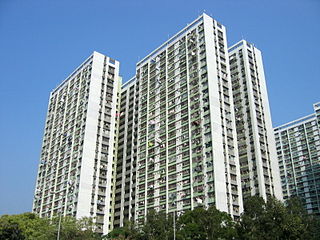
H Blocks is a 1970s block design in Hong Kong. Most of the blocks are constructed as public housing.

New Territories North-east was a geographical constituency in the election for the Legislative Council of Hong Kong in 1995, which elects one member of the Legislative Council using the first-past-the-post voting system. The constituency covers Tai Po District in New Territories.

Kowloon Central was a geographical constituencies in the election for the Legislative Council of Hong Kong in 1995, which elects one member of the Legislative Council using the first-past-the-post voting system. The constituency covers Kowloon City District and Wong Tai Sin District in Kowloon.

Kowloon West was a geographical constituencies in the election for the Legislative Council of Hong Kong in 1995, which elects one member of the Legislative Council using the first-past-the-post voting system. The constituency covers Sham Shui Po District in Kowloon.
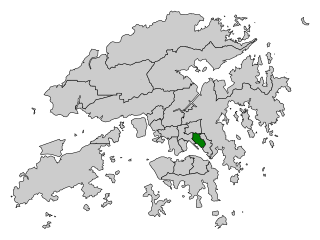
Kowloon East was a geographical constituency in the election for the Legislative Council of Hong Kong in 1995, which elects one member of the Legislative Council using the first-past-the-post voting system. The constituency covers Kwun Tong District in Kowloon.
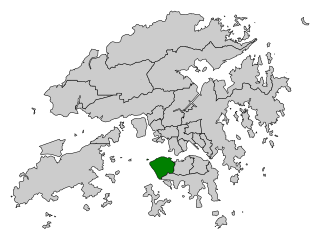
Hong Kong Island West was a geographical constituency in the election for the Legislative Council of Hong Kong in 1995, which elects one member of the Legislative Council using the first-past-the-post voting system. The constituency covers Central and Western District and parts of Southern District on Hong Kong Island.

Hong Kong Island East was a geographical constituency in the election for the Legislative Council of Hong Kong in 1995, which elects one member of the Legislative Council using the first-past-the-post voting system. The constituency covers part of the Eastern District.
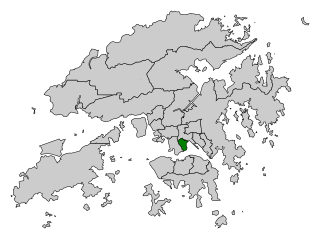
Kowloon South was a geographical constituencies in the election for the Legislative Council of Hong Kong in 1995, which elects one member of the Legislative Council using the first-past-the-post voting system. The constituency covers Kowloon City District in Kowloon.

Kowloon South-west was a geographical constituencies in the election for the Legislative Council of Hong Kong in 1995, which elects one member of the Legislative Council using the first-past-the-post voting system. The constituency covers Yau Tsim Mong District in Kowloon.

Hong Kong Island South was a geographical constituency in the election for the Legislative Council of Hong Kong in 1995, which elects one member of the Legislative Council using the first-past-the-post voting system. The constituency covers Eastern District and Southern District on Hong Kong Island.
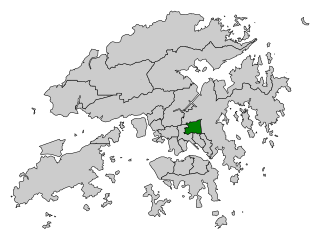
Kowloon North-east was a geographical constituencies in the election for the Legislative Council of Hong Kong in 1995, which elects one member of the Legislative Council using the first-past-the-post voting system. The constituency covers Wong Tai Sin District in Kowloon.

Kowloon South-east was a geographical constituencies in the election for the Legislative Council of Hong Kong in 1995, which elects one member of the Legislative Council using the first-past-the-post voting system. The constituency covers Kwun Tong District in Kowloon.

















